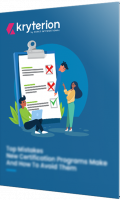AI has started delivering on the supply chain promise, but it must provide transparency and be tempered with human oversight.
Artificial Intelligence (AI) is a hot topic right now and has been for a while, but with the release of ChatGPT, we’re seeing in real-time how drastically AI can impact the world. In terms of AI in supply chains , these concepts have been around for years, but only recently do we see their they have gone into delivering on the AI promise being delivered. Forecasting has proven to be one of the areas that are most affected by this development.
Forecasting, as a technique, is not easy. Planners don’t have a crystal ball to predict what is going to happen months, or even days, into the future, and while hindsight is 20/20, planners need to look forward, not backward. Making the wrong forecasting decisions will have drastic impacts on your business as everyone is working to fulfill a plan that is inaccurate.
Leveraging forecasting AI, when applied correctly, considers a wide variety of potential factors that could impact your short-term demand sensing. This provides a realistic plan to start from as opposed to making decisions based on a limited set of factors, and there are many signals that should be considered, along with the potential impact from each. Some may be small in isolation but can be compounded when combined with others to have a much more impactful effect. A human seeing the causal effect can be challenging but AI can be trained to corroborate seemingly dissimilar elements to generate a robust forecast.
Note that the phrase “applied correctly” is key. That is the challenge with ChatGPT and other AI services – people don’t necessarily believe the results they get. This was highlighted during the launch of the Google Bard AI service when it was first demoed and provided a factually incorrect statement when asked “What new discoveries from the James Webb Space Telescope can I tell my 9-year-old about?”. If you rely on AI for making important business decisions, you need to be able to trust the results. AI does not have the track record yet, so black-box decisions are not sufficient for companies to depend upon for running their operations.
AI in supply chain management is akin to control towers; it is extremely valuable and needed, however, there isn’t one single definition that is used industry-wide, which is causing confusion in the market. Is AI the magic solution to solve every supply chain or is it a means for performing advanced analysis and automating repetitive, time-consuming tasks? This provides additional understanding into the situation and allows humans time to make more impactful decisions rather than spending their time on the mundane activities.
Kinaxis® believes human-centered AI, expertly combined with the power of concurrency , can drive the most intelligent supply chains on the planet. Our approach is to embed AI across the end-to-end supply chain, expertly fusing the best techniques to reimagine what is possible in supply chains.
Advanced supply chain software companies, like Kinaxis, have introduced techniques, including AI, on several fronts, including both demand and supply, to take the guess work out of forecasting and drive out costs. It doesn’t take long to realize real tangible benefits.
For example, one customer compared the AI forecasting capabilities of RapidResponse® with their traditional statistical forecasting and found it to be twice as accurate. This allowed them to reduce the manual planning activities by about 50%, partly because they trusted and understood the results and were able to create a unified system for reviewing data and forecasts. Leveraging analytics, insights, and exception-based workflows to prioritize high value-add work incorporated true drivers of their demand with both internal and external signals.
While there is no question that AI has great potential, it must be human-centric, augmenting humans, not replacing them. While AI has capabilities far beyond the cognitive capacity of humans, it’s people who bring context, collaboration and conscience that AI cannot replace. The combination of humans and AI working together form the dynamic duo needed take supply chains into the future.
Kryterion’s Approach to AI-integrated Test Development and Delivery
At Kryterion, we clearly see the opportunities and disruption that AI is bringing to our industry. Our top priority is to provide clients with the best mix of security, innovation, service, and value in our tools for test development and delivery. AI is quickly becoming an integral technology in our products and direction. The path we are on with AI encompasses the immediate benefits it provides while maintaining a sharp awareness of its evolution allowing us to ensure our products continue to meet or exceed the needs of our clients.
Please contact us to set up a meeting so we can further discuss how important AI is to our future and our clients.
Want to keep up with insights on AI in the testing industry? Listen to the Kryterion podcast







